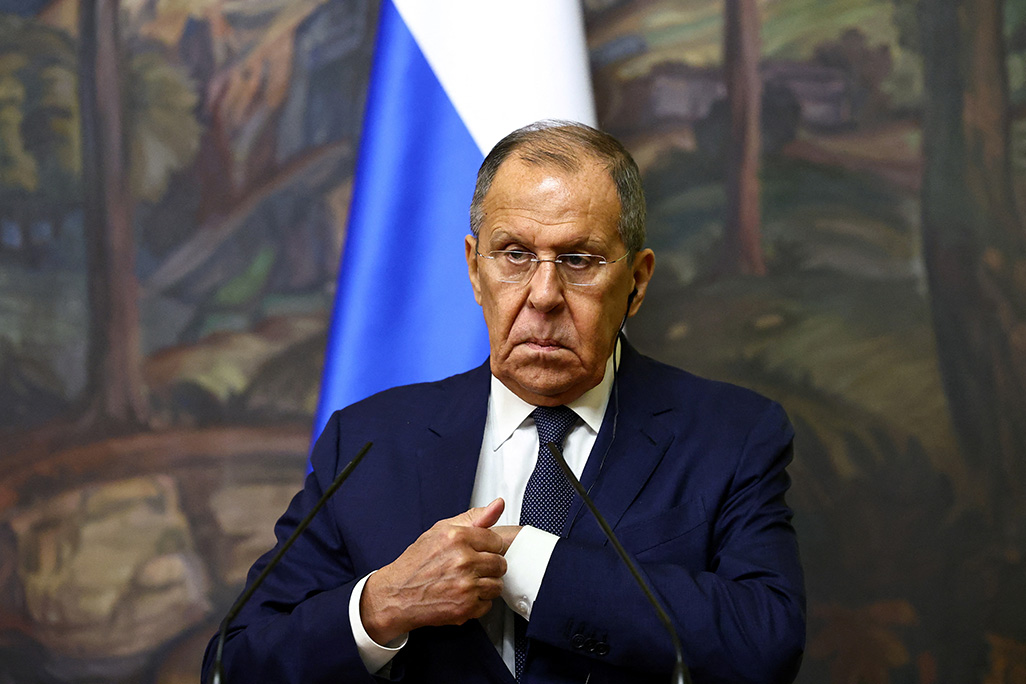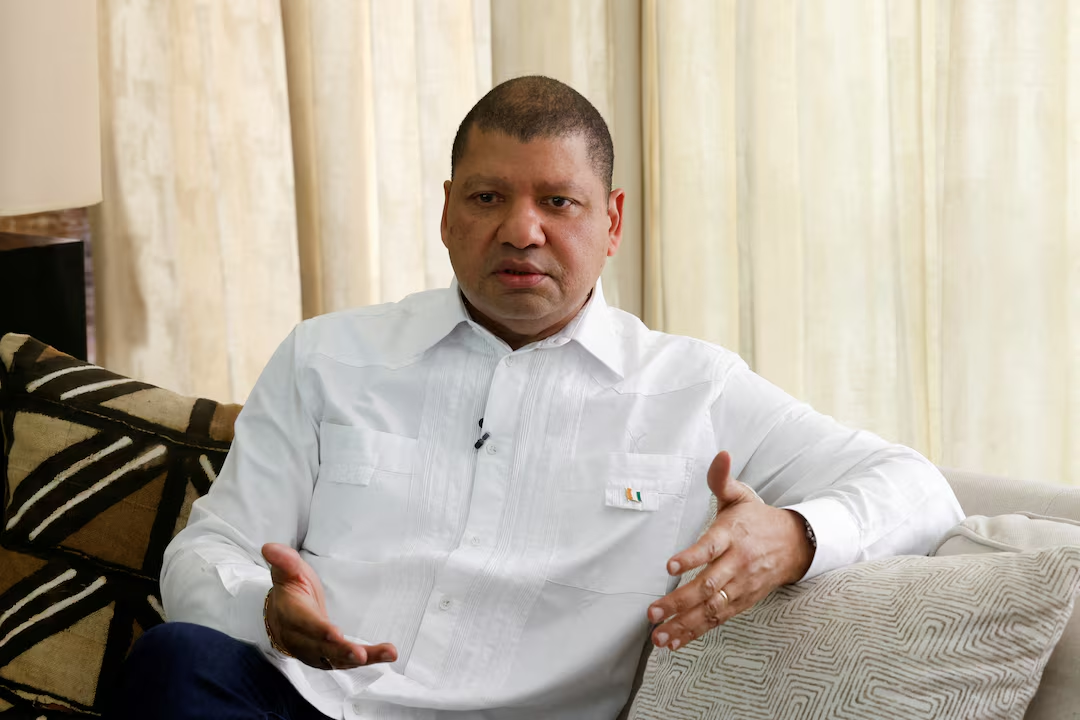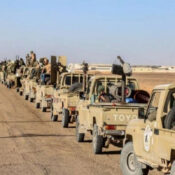
Lavrov issues a warning to the United States, cautioning against the act of mocking Russia’s ‘red lines’
Russian Foreign Minister Sergei Lavrov issued a response to a query regarding the possible transfer of long-range U.S. missiles to Ukraine. He cautioned the United States on Wednesday against making light-hearted remarks concerning Russia’s “red lines”.
Lavrov expressed concern that the United States was neglecting the concept of mutual deterrence, which has historically maintained a balance of security between Moscow and Washington since the Cold War. He emphasized the potential dangers associated with this development.
The individual provided a comment regarding a Reuters report indicating that the United States is nearing an agreement to provide Ukraine with long-range JASSM cruise missiles. These missiles have the capability to penetrate deep into Russian territory, a matter that Ukrainian President Volodymyr Zelenskiy has actively advocated for.
“I will not be surprised by any developments as the Americans have already surpassed the predetermined limit they established.” In a statement to a Russian TV interviewer, Lavrov highlighted that they are being encouraged and Zelenskiy is capitalizing on this situation.
“However, it is important for them to comprehend that the subject matter being discussed pertains to our predetermined boundaries.” The act of joking about our red lines is not advisable.
President Vladimir Putin has issued multiple warnings to the Western countries following the initiation of his self-proclaimed “special military operation” in Ukraine in 2022. He cautions against any attempts to impede Russia, which possesses the largest stockpile of nuclear weapons globally.
Washington and its allies have augmented military assistance to Ukraine, which includes the provision of tanks, advanced missiles, and F-16 fighter jets.
The assertion that Putin’s nuclear rhetoric is a bluff has led certain Western politicians to propose that the U.S. and NATO should provide extensive assistance to Ukraine in order to secure victory in the war. Zelenskiy has stated that Ukraine’s military operation into Russia, initiated on August 6th, undermines Putin’s established boundaries.
Lavrov stated that the United States was aware of the specific boundaries in this context. However, he emphasized that it would be incorrect to assume that Europe would bear the brunt of the repercussions resulting from any escalation of the conflict in Ukraine.
“According to Lavrov, they possess a genetic conviction that renders them untouchable by others.” The statement made by the individual suggests that the situation described has weakened the fundamental principles that have historically supported strategic stability between Washington and the Soviet Union.
The sensation of reciprocal deterrence appears to be diminishing inexplicably. The individual expressed concern, stating that the situation is hazardous.
WARNINGS
In his statement, Lavrov made reference to comments made by White House national security adviser John Kirby in June. Kirby had stated that President Joe Biden had consistently expressed that the United States was not seeking to engage in a global conflict referred to as “World War Three” (opens new tab).
Kirby stated that a significant escalation of the Ukraine war could result in “disastrous consequences, potentially affecting the entire European continent.” He also emphasized that such an escalation would not align with U.S. interests.
Lavrov has issued a warning to the U.S. for the second time in slightly more than a week, emphasizing that a potential third world war would have global implications beyond Europe.
The Kremlin announced on Wednesday that Russia is implementing modifications to its nuclear doctrine in response to perceived threats from Washington and its allies. These threats are believed to be a result of the escalating war in Ukraine and disregard for what Moscow considers its legitimate security interests.
The specific details regarding the update of the policy document outlining the conditions under which the use of a nuclear weapon may be considered, as well as the timeline for implementing these changes, have not been disclosed.
All Categories
Recent Posts
Tags
+13162306000
zoneyetu@yahoo.com


